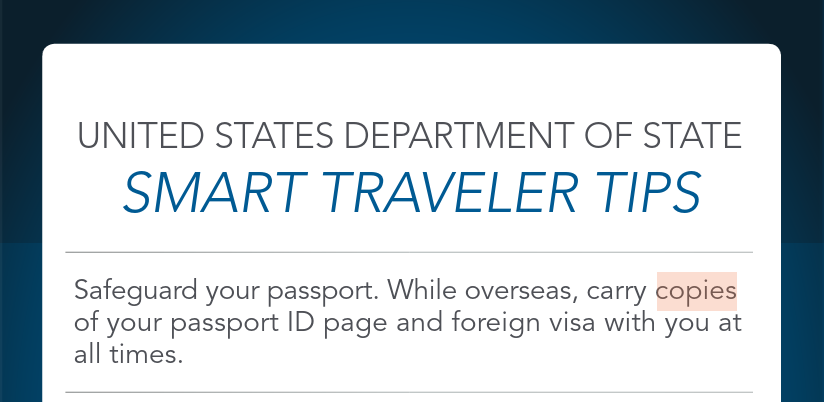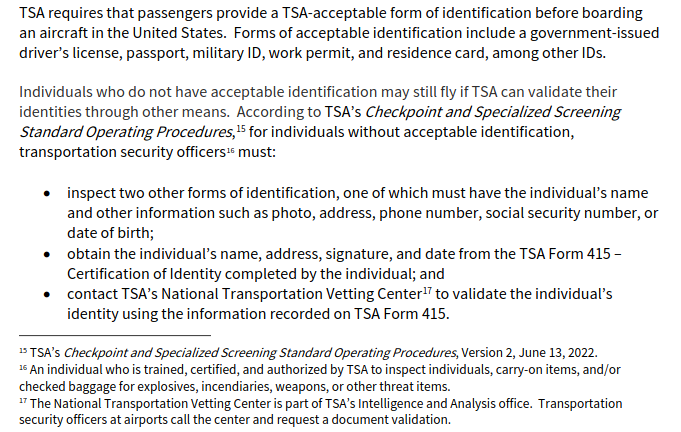Foreigners must register and carry their papers
The US Department of Homeland Security (DHS) is threatening to step up enforcement of Federal laws that require each foreign citizen present in the US for more than 30 days — even as a tourist or other visa-free visitor — to register with the US government and “at all times carry with him and have in his personal possession” the registration certificate issued by the US government.
These laws are not new, but they have rarely been enforced. Until the creation by the DHS in March 2025 of a new registration procedure, there was no practical way for many foreigners to comply. This was especially true for Canadian citizens who can stay in the US for six months at a time without a visa and without being registered by US authorities at land border crossings.
These laws and others like them that place foreigners under special suspicion and surveillance should be repealed, not revived. They are a threat to the freedom of foreigners in the US and, to the extent that other countries reciprocate, a threat to the freedom of US citizens traveling abroad. We shouldn’t always have to carry government-issued papers to prove who we are, whether we are in the country of our citizenship or any other. Human rights, including rights to freedom of movement, should not depend on citizenship.
The Alien Registration Act (currently codified at (8 USC §1301-1306) was enacted in 1940 as part of a bill more often referred to as the Smith Act. The bundling together of restrictions on dissident speech and association with requirements for registration and tracking of all foreigners reflects the xenophobic assumption that foreign ideas, associations, and individuals are presumptively suspicious and potentially subversive.
Similarly xenophobic assumptions underlie the Foreign Agents Registration Act (FARA), which requires almost impossibly burdensome registration, reporting, and labeling of informational materials produced or funded by foreigners.
Portions of the Smith Act were eventually found unconstitutional, but have largely been left on the Federal statute books along with the alien registration requirement. There have been fewer challenges to the Constitutionality of FARA, but it too remains on the books.
Violations of the the registration and other provisions of the Smith Act or FARA carry potentially substantial criminal penalties for those singled out for prosecution.
Laws like this that are widely and often unknowingly violated and rarely but selectively enforced are inherently vulnerable to weaponization against the demons du jour.
How many foreign tourists on Waikiki or Miami Beach are carrying their alien registration certificates in waterproof pouches over their bikinis or board shorts, or know that failure to do so is a crime? How many US citizens would want to be subject to reciprocal requirements when they travel outside the US?
Standard advice to tourists and other travelers anywhere is to carry only copies of your passport and any separate entry card or visa, not the hard-to-replace and valuable-to-thieves original documents. Leave the originals in a secure place in your hotel or lodging whenever possible.
Typical of this advice is the State Department wallet card of Smart Travel Tips send out with every new US passport:

[“Safeguard your passport. While overseas, carry *copies* of your passport ID page and foreign visa with you at all times.”]
The Alien Registration Act has quirks that cast doubt on its purpose or fitness for purpose. The law requires all foreigners to carry evidence of registration on their person at all times, but doesn’t require them to show these papers to police. Police or immigration enforcement officers need some independent basis to search a suspected foreigner for their immigration papers. There’s no statutory requirement for foreigners to have, carry, or show passports, only registration papers. Foreigners, especially asylum seekers including those who are stateless, can lawfully be admitted to the US without passports.
Thousands of comments were submitted to the DHS in response to the new alien registration regulations promulgated this year. Almost all of the commenters objected to the registration requirement, not just the new registration procedures.
The revival of the Alien Registration Act as a tool for tracking, intimidation, silencing, expulsion, or imprisonment of disfavored foreigners should be a sign that it’s time to repeal this law and all of the vestiges of the Smith Act as well as FARA.
